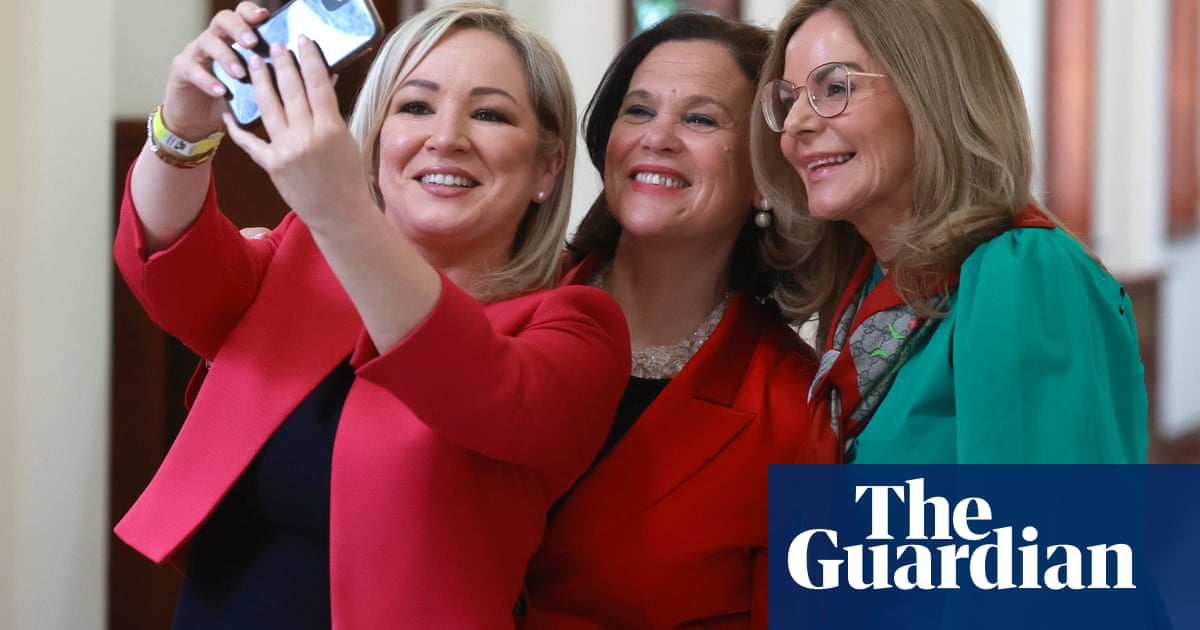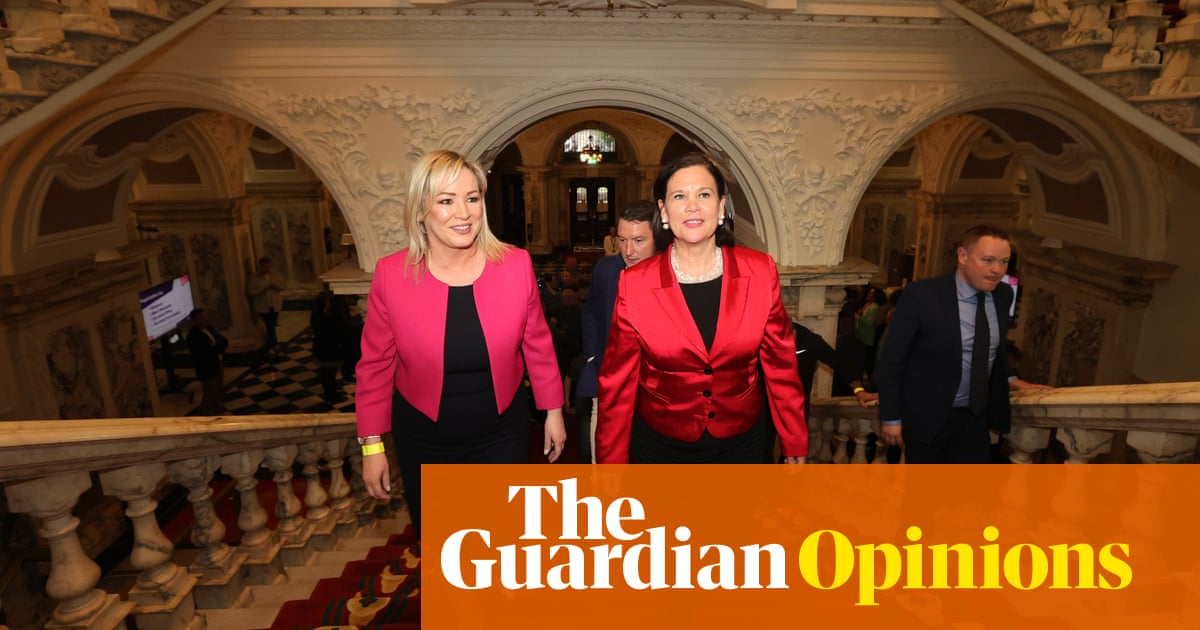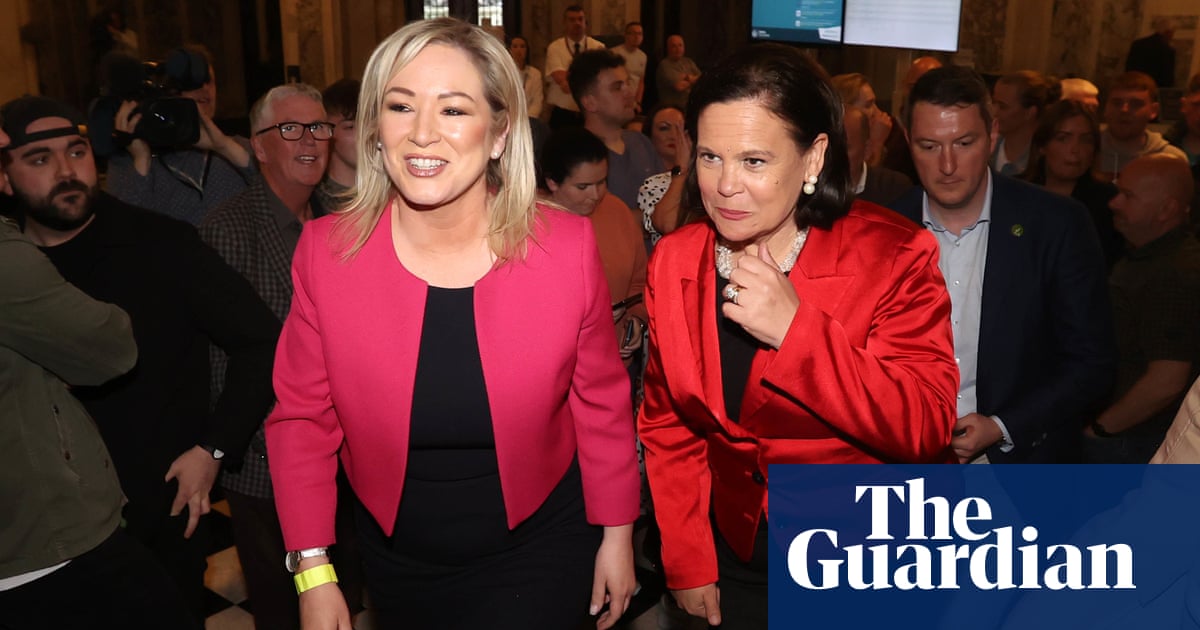
Sinn Féin has become the biggest party in Northern Ireland local government after stunning gains in council elections.
It swept past the Democratic Unionist party (DUP) and became the first nationalist party to hold the most council seats, delivering a political and psychological blow to unionism.
Sinn Féin made unprecedented breakthroughs in parts of County Down and County Antrim and almost doubled its vote from the 2019 local election in Balmoral, Belfast’s most affluent ward.
With 456 of 462 seats spanning 11 councils declared on Saturday night, Sinn Féin had 143, up from 105, and the DUP remained at 122. The non-aligned Alliance had 65, a gain of 14, while the moderate Ulster Unionist party (UUP) and moderate nationalist Social Democratic and Labour party (SDLP) slumped respectively to fourth and fifth place.
The share of first preference votes underlined the dominance of Sinn Féin, which won 30.9% versus 23.3% for the DUP, 13.3% for Alliance, 10.9% for the UUP and 8.7% for the SDLP.
Nationalist parties won 19,000 more first preference votes than unionist parties, according to Nicholas Whyte, a psephologist with the consultancy Apco Worldwide.
The election was also notable for Lilian Seenoi-Barr, an SDLP candidate in Derry, becoming the first black person to be elected as a politician in Northern Ireland.
Sinn Féin tapped nationalist resentment at a DUP boycott of power-sharing that has blocked Sinn Féin’s deputy leader, Michelle O’Neill, from becoming first minister. O’Neill fronted a presidential-style campaign that enticed SDLP voters to back Sinn Féin, which was an IRA mouthpiece during the Troubles.
“These election results are a positive endorsement of Sinn Féin’s message that workers, families and communities need to be supported, and that the blocking of a new assembly by one party must end now,” said O’Neill, who was mobbed by cheering supporters.
The DUP leader, Sir Jeffrey Donaldson, became a recruiting sergeant for republicans, Suzanne Breen, a commentator, wrote in the Belfast Telegraph. “The longer Michelle O’Neill is blocked from becoming first minister, the more voters are driven into the arms of her party.”
Sinn Féin’s triumph consolidated its success in last year’s assembly elections – when it eclipsed the DUP as the biggest party – and presented unionism with another reminder of its shrivelling demographic and political position.
“For unionism, it’s perhaps a ‘wake up and smell the coffee’ moment,” Edwin Poots, a former DUP leader, told the BBC.
He said the result showed the need for greater unity among unionists, who split their vote between the DUP, the UUP and Traditional Unionist Voice (TUV). Analysts said the result raised deeper, more troubling questions for those who favour keeping Northern Ireland in the UK.
The DUP emerged intact from what was a proxy referendum on its decision to paralyse the Stormont executive and assembly to protest post-Brexit trading arrangements.
While this herded nationalists to Sinn Féin, it also consolidated the DUP as unionism’s dominant force.
The moderate UUP and the hardline TUV were squeezed, letting Donaldson claim vindication for the DUP policy of claiming credit for the Windsor framework, which tweaked the original Northern Ireland protocol, and demanding further concessions before restoring the Good Friday agreement institutions. There is speculation the DUP will do so in the autumn.
Alliance consolidated its position as Northern Ireland’s third biggest party. Lewis Boyle, an 18-year-old A-level student who stood for the party in the Antrim and Newtownabbey council, became what was thought to be Northern Ireland’s youngest elected representative.
Colum Eastwood, the leader of the SDLP, said he would not resign, despite the party’s losses. “If I thought the right course of action was to step down, I would do it in a heartbeat,” he said.












